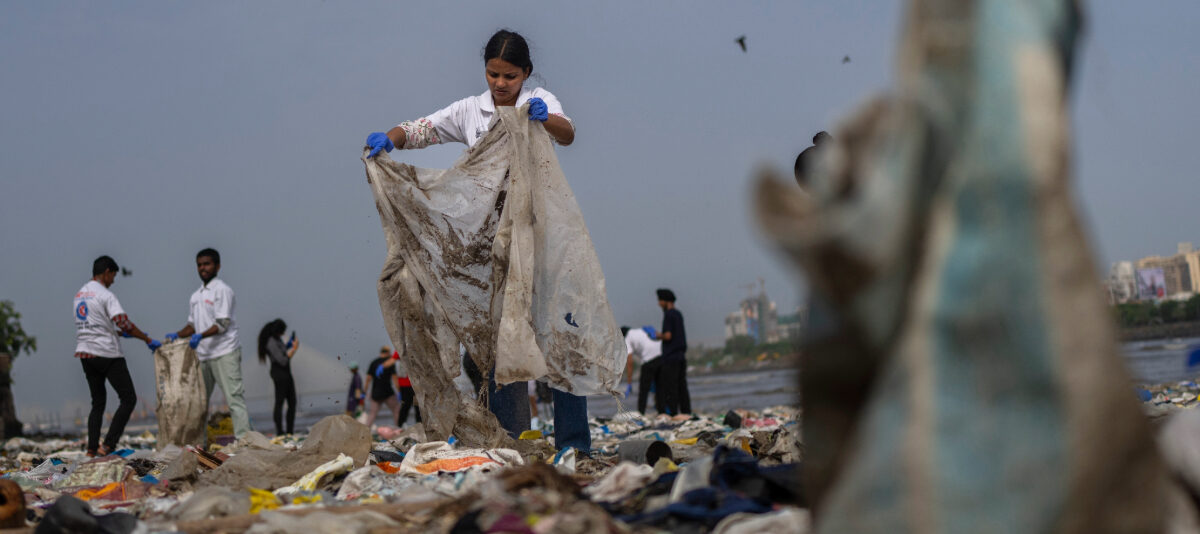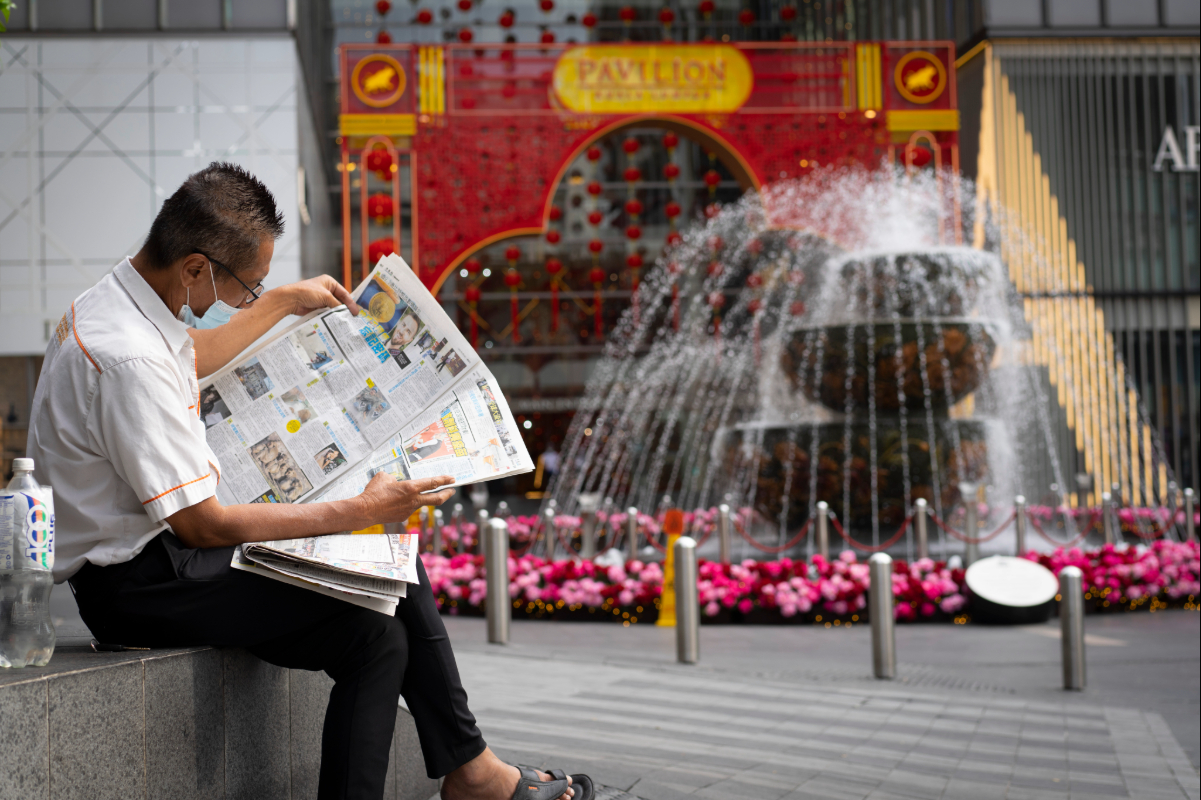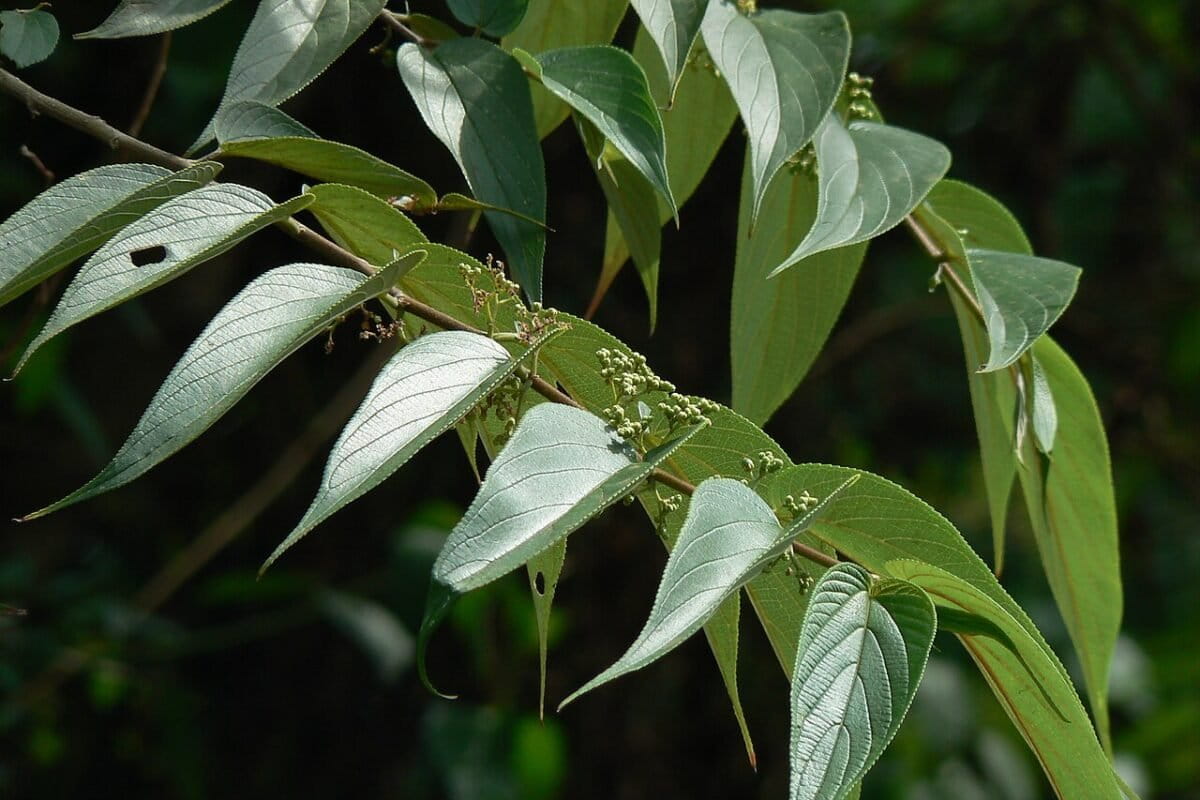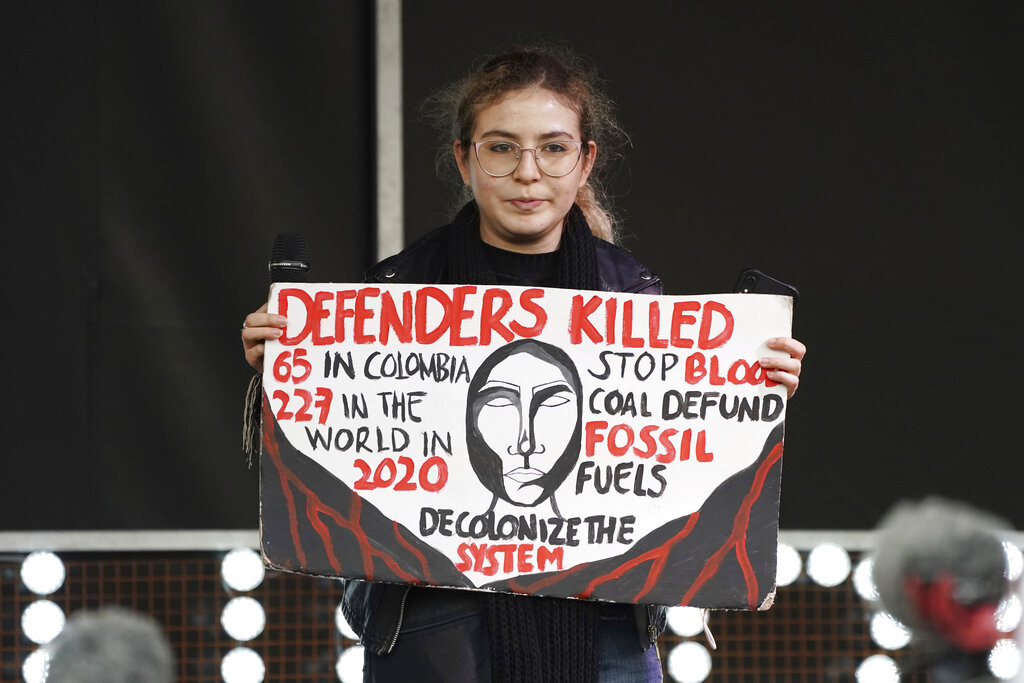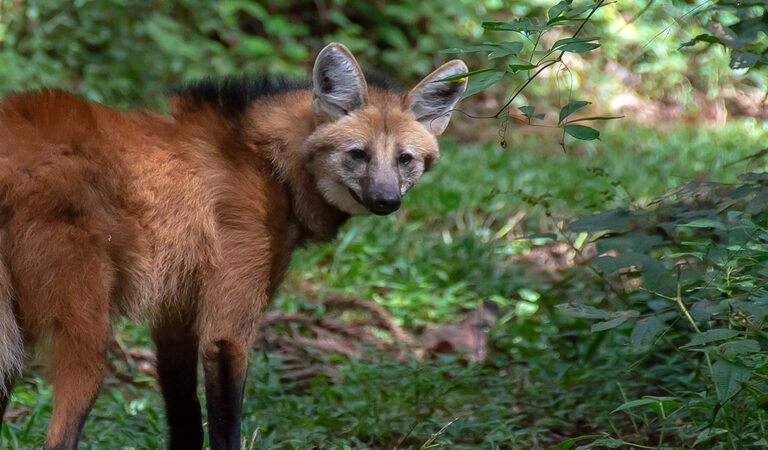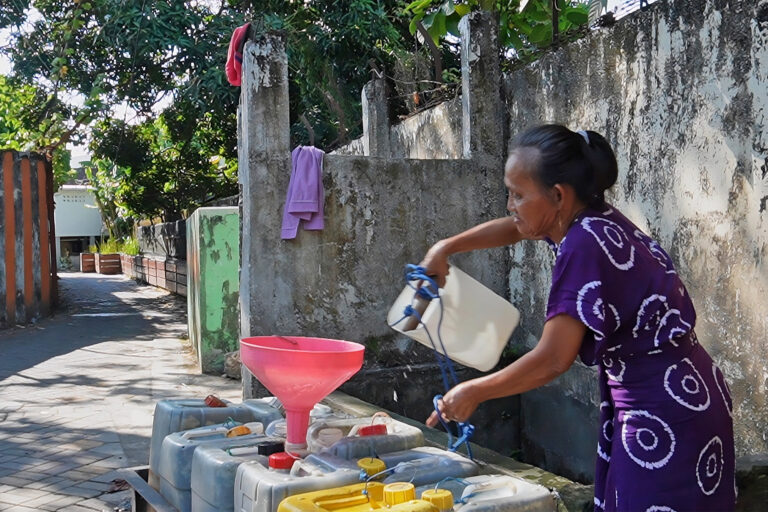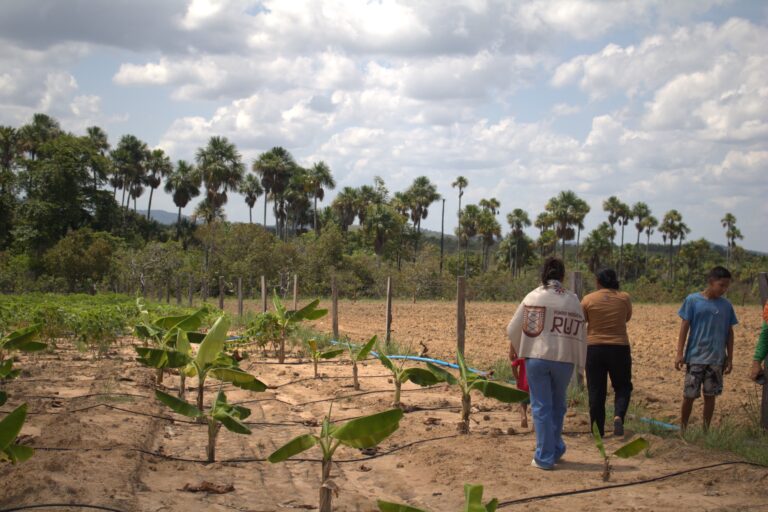- Brazil’s Blairo Maggi made a fortune with vast Mato Grosso soy plantations in Legal Amazonia. Today, Amaggi Group, the family company, dominates the nation’s agribusiness sector — profiting from farm commodities, and the roads, railways, and industrial waterways that transport them.
- Maggi rose through Brazilian politics, becoming Mato Grosso’s governor, a senator, and today, the Temer administration’s agriculture minister. He is also a leader of the bancada ruralista, the agribusiness lobby, that dominates Brazilian government.
- Once known as the Soy King, Maggi has often pushed anti-environmental agribusiness policies, including those resulting in major Amazon deforestation, ending indigenous land demarcation, and harmful infrastructure projects putting biodiversity at risk. He has also, paradoxically, worked to end illegal logging and to reduce deforestation.
- On Monday, 17 July, Maggi will meet with the Trump administration to urge the U.S. to lift its ban on Brazilian beef, a ban prompted by scandal involving a corrupt federal meat inspection service overseen by his ministry. Maggi was recently accused of corruption by federal Lava Jato investigators. He continues to shape Amazon policies.

The life’s journey of controversial businessman and politician Blairo Borges Maggi has led him from a small family farm, to ruling over a vast international agribusiness empire. It saw Maggi rise from Mato Grosso state governor, to senator, to his current job — head of the Ministry of Agriculture, Livestock and Food Supply (MAPA), a position assumed under Brazil’s President Temer in 2016, upon the downfall of Dilma Rousseff.
Maggi is a complex figure, not easily pigeonholed. The media once dubbed him the “Soy King” while environmentalists demonized him by awarding Maggi a Golden Chainsaw award for presiding over record Amazon deforestation in the early 2000s. More recently, he won praise from some conservationists for helping curb illegal forest clearing.
Today, the minister sees himself as a champion of Brazilian agribusiness — a fantastically profitable commodities industry that continues to expand even as the nation’s economy falters. Maggi trumpets his and Brazil’s role in reducing world hunger, calling the nation’s soy producers “a vital part of the food chain.” But Maggi’s story is also dogged by charges of corruption, and by association with the bancada ruralista, Brazil’s agribusiness lobby — linked to land theft and Amazon deforestation.
His current high position in the Temer government — administering Brazil’s agribusiness powerhouse, which has long coveted the Amazon — provides Maggi with extraordinary influence over the future of the rainforest. As such, he is a man environmentalists need to know and understand better.
Even as President Temer faces a likely vote in the House of Representatives next week regarding serious corruption charges against him, Maggi plans to travel to the United States to plead with Trump administration Agriculture Secretary Sonny Perdue to end a U.S. ban on Brazilian beef exports. The ban was prompted by a tainted meat scandal involving a corrupt federal inspection service overseen by Maggi’s ministry.

Agribusiness beginnings
Born in 1956, Maggi was still a child when his father, André, first grew soybeans on a small property in São Miguel do Iguaçu, in Paraná state in the country’s south. The farm thrived, and in 1977 the family — which included Andre’s wife Lúcia; son, Blairo; plus four daughters — opened the Sementes Maggi company.
International grain prices kept rising and so did Maggi family prospects, which then looked to the vast plains of the Brazilian Midwest. In 1979, André Maggi bought 2,400 hectares (5,930 acres) in Mato Grosso state.
Today, the Amaggi Group (“A” as in André) is one of the world’s largest soy exporters and one of Brazil’s largest national grain producers. The diversified Amaggi Group is also heavily invested in the large scale government subsidized infrastructure projects needed to sustain the soy industry, including soy terminals, highways, railways and industrial waterways — projects over which Blairo Maggi wields significant influence as agriculture minister.
Still, he remains a farmer at heart: “What really makes me feel happy is seeing the beans in the fields,” Maggi told The Guardian newspaper in 2008.
In 2016, Amaggi Commodities’ net revenue from sales totaled US $3 billion, a 27.6 percent increase compared to 2015, according to business magazine Exame. Adjusted net income was US $126.8 million last year, against US $29.8 million in 2015.
The group’s economic success is certainly due, in large part, to the founder’s entrepreneurial zeal (he died in 2001) and to his hardworking son, who helped build the company. But Amaggi’s fortunes also benefited significantly from Brazil’s military dictatorship (1964-1985), whose programs heavily favored the then emerging agribusiness class — the ruralistas — who continued receiving benefits under democracy. The bancada ruralista, agribusiness lobby, is, according to many experts, the most powerful single political force in the Congress and the Temer administration today.

Winning big on an unlevel playing field
“The Maggi business story has its origins in the agro expansion plans of the military dictatorship in the Cerrado and the Amazon,” explained geographer Sandra Costa, a University of São Paulo doctoral student whose 2012 master’s thesis is entitled The agrarian issue in Brazil and the rural caucus in the National Congress.
A flood of federal money via military dictatorship initiatives such as POLOCENTRO — the Cerrado Development Program — funded agribusiness infrastructure (roads, grain storage and electrification), and subsidized rural credit, large-scale planting research, and technical support for new producers breaking into agribusiness.
But there was much more: “The government handed out lands — then inhabited by peasants and indigenous people — to companies interested in producing commodities that would be traded on stock exchange markets,” Costa told Mongabay. “The areas were leased to large and medium-sized producers or sold at very low prices.”
After the expiration of the original lease contracts, many producers, especially in the Amazon and Cerrado, manufactured fraudulent real estate deeds, often increasing the size of their holdings, said the geographer.
“At this stage of agricultural colonization (1975-1984), small farmers,… [traditional] and indigenous people were ignored by [business-friendly] government policies.” Seen as obstacles to progress, poor rural people were dispossessed of their lands, forced to move to cities or take hazardous jobs in the countryside — often in slave-like conditions. This harsh reality contrasts sharply with the image projected by “so-called modern Brazilian agriculture,” said Costa.
“Our agrarian reality is the result of a historical process from a patrimonial state, which does not distinguish boundaries between the public and the private, and in which big landowners have always been part of, and controlled the Executive, the Legislative, and even the Judiciary,” Costa asserted.

Soy King and governor
In the early 1990s, the Maggis entered politics. André, the family patriarch, founded Sapezal, a municipality in Mato Grosso, and became its first mayor. Blairo began as a substitute senator.
“The creation of… Sapezal is anchored in a colonization proposal of the Maggi Group,” notes the municipality website, a statement that demonstrates the close ties between agribusiness and the communities they helped create in the Cerrado and Amazon. After a few years, André Maggi left his post; though not before initiating a commodities export corridor on the Madeira River.
In 2002, Blairo Maggi was elected governor of Mato Grosso, with 50.6 percent of the vote. Brazil’s soy exports were experiencing an unprecedented boom then, and Maggi prioritized infrastructure investments during his tenure, paving 600+ miles of road and helping link Brazil’s soy-growing interior with the Atlantic coast and global markets.
Maggi, for instance, got the controversial MT-235 road built through the Utiariti indigenous reserve, which enabled soy to be carried by truck to the Madeira River. This was very useful to Maggi — owner of 200,000+ hectares (494,000 acres) of soy by 2008 — and to other farmers too.
Road building gained the governor great local praise: Maggi “always helped the region.… He opened roads for his own products, but then he let everyone use them. So why would anyone complain?” said Dal’Mazo, Sinop’s former mayor.

But Governor Maggi wasn’t praised by environmentalists. In 2003, his first year in office, the deforestation rate in Mato Grosso more than doubled. INPE, the agency that tracks Amazon deforestation, reported 10,088 square miles of forest loss in the region between August 2003 and 2004, of which 48 percent occurred in Mato Grosso.
One of the strongest criticisms of Maggi at the time is found in The Independent newspaper, in an article entitled The rape of the rainforest… and the man behind it: “He is Blairo Maggi, the millionaire farmer and uncompromising politician presiding over the Brazilian boom in soya bean production,” reported the paper. “He is known in Brazil as O Rei da Soja — the King of Soy. Brazilian environmentalists are calling him something else — the King of Deforestation.”
Maggi’s indifferent statements about the environment didn’t help his image: “To me, a 40 percent increase in deforestation doesn’t mean anything at all, and I don’t feel the slightest guilt over what we are doing here,” he told The New York Times, “We are talking about an area larger than Europe that has barely been touched, so there is nothing at all to get worried about.”
Maggi received the Golden Chainsaw Award in 2005 from Greenpeace, the environmental NGO, for his contribution to the destruction of the Amazon rainforest.

Reelection
The governor’s negative image didn’t prevent him from winning re-election in 2006, this time with 65.3 percent of the vote, showing that his unpopularity with conservationists didn’t extend to Mato Grosso voters who saw him as bringing prosperity to their once remote state.
Gradually, however, Maggi began to dialogue with his critics. He participated in climate conferences and hosted the XIV Katoomba Meeting, a Cuiabá event attended by scientists and environmentalists concerned with forest preservation.
He courted environmentalists, working to curb illegal logging and deforestation by the farm sector. He lobbied to implement the carbon compensation mechanism, keeping farmers from cutting down forests while reaping tax revenue for Mato Grosso. Though the state’s deforestation rates remained high.
Maggi’s second term (2007-2010) also saw him support the construction of hydroelectric dams in the Amazon basin, including the 256 megawatt (MW) Dardanelos dam on the Aripuanã river, and other small hydro projects (SHPs in English, or PCHs in Portuguese).
The controversial Dardanelos dam cost roughly US $229 million, and was 65 percent financed by BNDES, Brazil’s gigantic national development bank. The project faced numerous legal challenges from environmentalists. The State Public Prosecutor’s Office (MPE) filed a civil lawsuit against the State Environmental Department (Sema) — created by governor Maggi in 2005 — stating that the project’s Environmental Impact Assessment (EIA) presented “very serious legal problems.” According to the lawsuit, the EIA failed to include harm that would be done by the construction of transmission lines required for energy distribution. In 2010, the dam was occupied by indigenous protestors demanding compensation for destruction of burial sites.
Two small hydroelectric plants in Mato Grosso, owned by Amaggi Energia, were completed in 2007. That same year, Sema authorized a route change to the Dardanelos transmission line, at an added government cost of US $153 million, saving Amaggi the expense of connecting the PCHs to the electric transmission system. Currently, Amaggi Group has five PCHs with a total output of 70 megawatts, used to support soy production. One of these projects threatened the livelihood of the Enawené-Nawé indigenous group, which is struggling hard to maintain its traditional way of life, and it was blocked by a federal prosecutor in 2008. However, governor Maggi took the case to the Supreme Court, which overturned the suspension order.

Global soy
As Blairo Maggi’s fortunes rose, so too did those of the Amaggi Group, which has evolved into an international juggernaut. In 2008, the company inaugurated Amaggi Europe based in Rotterdam, Holland, followed by the acquisition of a soybean crushing company in Fredrikstad, Norway, and the lease of 5,000 hectares (12,355 acres) in Argentina — the world’s third largest soy producer. China, Amaggi’s biggest customer, doesn’t have a subsidiary yet, but the group has said it intends to “be in the U.S. and Asia by 2020.”
The conglomerate’s fast growth was paralleled by an increase in Blairo Maggi’s personal net worth. Between 2006 and 2010 his fortune rose from about US $10 million to US $46 million, reported to the Electoral Court when he was a candidate for the Brazilian Senate.
In an interview with Veja magazine last March, Maggi played down his wealth: “I can have the title of billionaire, but my earnings are limited. [In] my family’s business, I only receive dividends, I can’t buy a luxury yacht, [or] do anything I want.”
According to Forbes Brazil magazine’s list of the 50 largest Brazilian billionaires, Maggi in 2015 had a net worth of US $1.22 billion, while other family members also appeared in the ranking: his mother, Lúcia, for example, held another US $1.22 billion.
Maggi the billionaire continues to see himself as a guardian of agribusiness: “I want more railways [and] paved or [new] highways,” he said recently, referring to his goal to repair and expand Brazil’s vast transport network.
Among his big dreams is an industrial waterway that could move Amaggi soy and grain, and the commodities of other companies, from Mato Grosso along the Juruna and Teles Pires rivers, then to the Tapajós River and down the Amazon, to the Atlantic and ports in Europe and Asia. Scientists have expressed alarm at the potential environmental harm of these projects, calling it “a crisis in the making.”


Maggi also remains a vociferous advocate of improvements in the BR-163 highway, which links Mato Grosso with the Tapajós River and is seen by growers as a vital outlet to foreign markets for soy, beef, corn and other commodities. However, “Over the past decade the number of land thieves grew around the BR-163,” Imazon researcher Paulo Barreto told Mongabay. And even the establishment of new federal conservation units along the road didn’t stop the crime. “Today, the installed grileiros [wealthy land grabbers] react against the protected areas, [seizing control of federal lands,] a true degrading of the instruments of public policies.”
Two days after leaving President Lula’s Ministry of the Environment in May 2008, Marina Silva declared that Mato Grosso Governor Blairo Maggi and Rondônia Governor Ivo Cassol had both put pressure on her to ease some of the measures implemented by the government to reduce deforestation in the Amazon.
Rising political star
In 2010, Maggi’s star rose higher, with his election as a Mato Grosso senator, and he quickly revealed himself to be a gifted parliamentarian.
In 2013, though opposed by left-leaning congressmen who support the environment, Maggi was elected by his fellows as the president of the Committee on Environment, Consumer Protection and Supervision and Control (CMA).
Maggi, along with 27 other senators, presented a constitutional amendment to suspend the demarcation of indigenous lands, a process initiated by Brazil’s 1988 Constitution. This came as a huge shock to Brazil’s indigenous groups who, in good faith, had been pursuing the slow legal process for decades, but the move was also seen as a huge gain for the ruralistas, many of whom hope to grab lands claimed by Indians. The measure has yet to pass, but is still being considered by Congress.
Another of Maggi’s contributions to the Senate was his defense of PEC 65/2012, a constitutional amendment that would streamline (critics would say “gut”) the environmental licensing process for large infrastructure projects, such as dams and roads. PEC 65/2012 states that upon the presentation of an initial environmental Impact Assessment (EIA), no future work on a project can be suspended or canceled.
As rapporteur of the Constitution and Justice committee, Maggi stated in April 2016: PEC 65 “aims to ensure legal certainty in the execution of public works. It does not affect the right to an ecologically balanced environment.” Environmentalists oppose the amendment, which still awaits a vote.

Meanwhile, Amaggi continued expanding. The conglomerate opened a division in Switzerland in 2013 (it sells corn and bran to Italy, Algeria and Morocco), and another in Ciudad del Este, Paraguay, in 2014, which supplies European and Asian markets.
But not everything went Maggi’s way. At the end of 2013, he and other officials were named in connection with the Federal Police Ararath Operation, an inquiry into undue advantages received by politicians; Maggi himself was not called in person before the federal Supreme Court (STF). “As governor, Blairo Maggi took loans from the BicBanco [bank], concealing his borrower’s condition[s] and [acted] with spurious intentions in Mato Grosso politics,” reported STF minister Dias Toffoli, authorizing continued investigation.
Documents seized at the residence of former aides to the Mato Grosso governor “revealed that… Maggi obtained US $1.2 million in monetary advantage.” The money went to pay Alencar Soares Filho, councilor of the State Court of Auditors (TCE-MT) so he would retire early, leaving the vacancy for Sérgio Ricardo de Almeida, also from TCE, and likely a Maggi ally.
In May 2016, Attorney General Rodrigo Janot requested to STF minister Dias Toffoli that the Operation Ararath investigation of Maggi be closed. Toffoli concurred, stating that the investigation failed to “achieve effective and conclusive proof of Maggi’s direct execution of, or participation in” acts of corruption. Two days later, Maggi was chosen minister of Agriculture by newly appointed President Michel Temer.

Problems with meat
Since taking office more than a year ago, the new MAPA chief has made his federal deregulation agenda clear. In a February 2017 interview reported by Telesur, Maggi said that “One of the things that most affects the results of producers is bureaucracy, rules passed years ago that make very little sense today and cost money to adhere to.… Leave the market freer so that it can run faster!”
Early on, he announced his Agro + Plan, which includes 69 measures “for increased efficiency and reduction of bureaucracy in Brazilian agribusiness.” Maggi’s ministry reduced the stringency of commodities sanitary certification rules and ended re-inspections of shipments and ports by the Federal Inspection Service (SIF), and eliminated the requirement for the agency’s seal guaranteeing animal product quality.
At the Agro + Plan launch, Maggi declared: “The state can no longer afford to hire hundreds of technicians for bureaucratic positions. We need to trust more the [agribusiness] companies… who invest millions of dollars in their productive chains. The state will only carry out occasional inspections. Who will penalize companies once caught in an infraction is… mainly the market.”
The judgment of the market struck swiftly. In March 2017, the Federal Police revealed rampant corruption in the Brazilian meat industry and federal inspection service aimed at facilitating “the production of adulterated food by issuing sanitary certificates without any effective inspection.”
Employees at Maggi’s Ministry committed crimes in Paraná, Goiás and Minas Gerais states in order “to protect business groups, to the detriment of public interest,” according to law enforcement investigators of the Weak Flesh Operation (a code name alluding to the phrase “The spirit is willing but the flesh is weak“).

For at least the last three years, and well before Maggi arrived, Brazilian agricultural inspectors allowed expired and adulterated products from 21 meat processing plants to be sold and exported. In exchange, MAPA agents received bribes or even had their salaries paid directly by the meat processing companies, as was done by Seara, owned by JBS, Brazil’s largest meat packer — whose company co-owner recently implicated President Temer himself in corruption.
The meat inspection scheme became so extreme that some MAPA inspector positions were allegedly filled by representatives of the meat processing companies. The personnel of one meat processing giant, BRF, even occupied inspectors’ tables inside the Ministry of Agriculture and issued sanitary certificates using MAPA agents’ passwords, according to police. In return, the meat companies heavily financed the election campaigns of ruling political parties.
Over the last year, Maggi’s ministry has identified about 200 rules and regulations judged to be antiquated or inefficient. These are to be streamlined or eliminated to reduce costs to agribusiness producers.

Photo by Carlos Silva/MAPA
Maggi’s defense
With the meat scandal exploding at the heart of the ministry, Maggi took action. He accused the Federal Police of “technical errors,” suspended exports from units under investigation, fired inspectors and superintendents. He avoided mention of his own relaxation of inspection standards, saying instead that problems stemmed from a lack of agents supervising the processing plants, then added that MAPA didn’t have adequate funds to hire new agents.
China, one of the largest importers of Brazilian meat (US $ 1.75 billion in 2016 according to the Ministry of Industry, Foreign Trade and Services), banned all meat products and demanded a government response, promptly provided by minister Maggi who took a Chinese delegation to visit a BRF plant in Rio Verde, Goiás. Brazilians, who consume 80 percent of the nation’s meat production, did not receive the same level of clarification.
“The lack of answers from the government shows that the exporting agenda is more important than health and food security. Maggi shows all the time — including in his daily posts on Facebook — to be concerned only with the economic agenda. What matters is the external perception of the [meat] problem. He did not create this logic, but it has gained a radicalized version [under his leadership]. Maggi is the catalyst of forces that promote agribusiness at any cost,” said Alceu Castilho, editor of the De Olho nos Ruralistas, a website that serves as a watchdog of Brazilian agribusiness.

Agribusiness’ fiscal advantage
The exemption of agribusiness exports from federal social security contributions is another byproduct of Brazil’s “agribusiness at any cost” mentality.
By law, agribusiness exporting companies are the only Brazilian businesses given such an advantage, which continues despite a crisis that threatens the collapse of the nation’s social security system, which had a US $70 billion deficit in 2016.
The ruralistas and Maggi stand firmly against the taxation: “[A]gribusiness has contributed the most to the Brazilian economy and to the balancing of public accounts, so to penalize the ones who are efficient is crazy,” said the minister in defense of his industry.
The ending of this special export exemption is one of the goals of the social security reform plan currently under discussion in Congress. According to estimates from the Institute of Applied Economic Research (IPEA), if approved, the measure would generate an extra revenue of US $2 billion per year.

And the deforestation…
The ruralists cry of “agribusiness at any cost” extends to the environment too, say critics. Last March, Maggi stated that, “Brazil needs to be recognized as a country that promotes sustainable agriculture and preserves the environment. [But] no one in the world has laws protecting river banks and legal reserves ownership as it happens here,” a statement indicating the minister’s continued commitment to deregulation and the weakening of land protections.
When questioned about the 3,088 square miles of Amazon deforestation occurring between August 2015 and July 2016, a 29 percent increase over the previous year, the minister replied: “These data do not have anything to do with soy or agriculture. Most likely, deforested areas have been transformed into fields of livestock farming. Meat processing companies are no longer buying meat from those who do illegal deforestation. I do not rule out the possibility that this has to do with [rural] settlements as well.”
There is evidence against what Maggi claims, with much deforestation likely attributable to agribusiness, especially the cattle industry which often “launders” beef herds by raising them on illegally deforested lands, then by moving the herds to legal pastures just before slaughter.
Márcio Santilli, one of the founders of the Socioenvironmental Institute (ISA), discounts the untarnished agribusiness image that ruralist politicians like Maggi present to the Brazilian and global community: “It’s a deceitful discourse and a strong shield. Maggi, like the ruralist sector, does not recognize that there is an organic relationship between agricultural production and deforestation.”

Since last year, the independent litigators of the Federal Public Ministry of Pará has been investigating the participation of Amaggi Exportação e Importação in a business endeavor that destroyed 115 square miles of Amazon forest, and allegedly involved illegal land appropriation and use of slave labor.
Between 2012 and 2015, Amaggi, meat processor JBS and the Bom Futuro Group (whose partners are Maggi’s cousins) allegedly transferred US $5.3 million to cattle rancher AJ Vilela, the leader of a violent gang of illegal Amazon deforesters. The money was supposedly used to purchase grain and animals coming from illegally deforested areas. AJ Vilela was charged as part of The Flying Rivers Operation federal investigation.
This is just one of the legal problems and corruption charges Minister Maggi faces today. This January judge Luis Aparecido Bertolucci of the Public Record Civil Action Court in Cuiabá, ordered the freezing of US $1.2 million of Maggi’s assets and the removal of councilor Sérgio Ricardo de Almeida from the State Court of Accounts (TCE-MT) for alleged purchase of a vacancy in the TCE. The judge ruled that the closing of the criminal investigation against Maggi in the Ararath Operation does not prohibit a civil action for administrative improbity. In March, the MAPA minister filed a petition alleging bias against judge Bertolucci.
In April, it was announced that Maggi and eight other ministers of president Temer’s government would be investigated for corruption by the federal Supreme Court (STF) as part of the Lava Jato, Car Wash Operation investigation. According to the testimony of Odebrecht construction company executives, Maggi allegedly received US $3.6 million in illegal campaign contributions during his 2006 run for governor.
Revelations regarding Maggi will likely continue to arise as various investigations progress, even as the Temer government totters on the brink (with new charges of corruption against the President reportedly forthcoming). In the meantime, the administration’s agriculture ministry, guided by Maggi, continues churning out new measures, often providing the ruralists with victories while putting Brazil’s environment and biodiversity at risk.
Mongabay requested an interview with minister Maggi several times in April and May of 2017, but MAPA’s communications office did not respond to the requests.
FEEDBACK: Use this form to send a message to the author of this post. If you want to post a public comment, you can do that at the bottom of the page.




